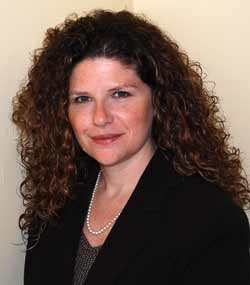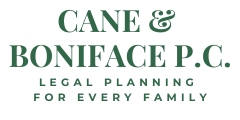Estate Planning, Health Care Directives, Fraud – Summer 2021
We hope you are enjoying the summer thus far, enjoying some normalcy (but still being careful), and embracing the positive things which came out of the last year and a half.
In our office, we were thrilled to celebrate some special graduations this June ~ Courtney’s daughter, Kersten, and Jackie’s daughter, Olivia, both graduated from Nyack High School and will be off to college soon. Stephanie’s daughter, Paloma, graduated from pre-school and is ready to start kindergarten in September.
Here are some estate planning tips and related ideas to protect you and your family now and through the remainder of the year.
Putting Your Affairs in Order
We hope the worst of Covid-19 is behind us and look forward to more stable times, but it is important to have your estate plan in order. Now is a good time to review any plan you made in the past.
- Are the beneficiaries still those you would name today?
- Are the people you named as your executors, trustees, guardians and holders of your power of attorney still appropriate?
- Are the agents you selected to make health care decisions if you cannot make them for yourself the right ones for you now?
- Did you appoint an agent to control disposition of your remains? Funeral homes have recently been requesting this document more often. Do you need to make changes?
If you do not have documents, think about what you want to accomplish. Make notes of your concerns and goals. Go to our website and download the questionnaire or call us and we will send you one to get started. We do have in-person appointments available in the office but are also happy to meet with you by video conference or telephone.
Young Adults
Yes, they need to do estate planning too!
While most 18-year-olds may not need a will or trust just yet, everyone over 18 should have health care documents and a power of attorney in place. In the eyes of the law, they are adults (even if Mom and Dad still pay for most of their living expenses). Kersten and Olivia, along with many of their classmates, have already signed their documents. If there is a medical emergency, parents or other loved ones should be able to speak with the college health clinic, hospitals and doctors.
Powers of Attorney will allow young adults to name people they trust to act as their agents to deal with things like filing taxes, handling transactions at the bank, dealing with the registrar’s office, and the like. These documents are especially important if your young adult will be traveling far from home or spending a semester abroad.
Not-So-Young Adults
What about your adult children? Do they have their estate and financial plans in order? Are your grandchildren protected in case anything should happen to your child? If the worst happened to your child or your child’s spouse, will you need to help support your grandchildren if there are not enough assets and life insurance to help pay the mortgage, taxes, tuition, and other endless expenses? Can you afford to help?
Lead by example. Let your child know you have your planning in order and talk about the process. If your children don’t know where to start, introduce them to your team – your financial advisor, insurance broker, accountant and attorney. If you can, offer to help pay the cost of putting a plan in place, perhaps as a birthday or holiday gift. It will give your children peace of mind knowing their families are protected, but also give you peace of mind as well.
Estate and Gift Taxes
The federal estate tax threshold is $11.7 million and everyone can make gifts each year up to $15,000 per person (to as many people as you’d like) without having to file a gift tax return.
We are expecting to see some changes under the new administration, which will likely include a reduction of the estate tax exemption and a possible limit on how much you can give each year.
If your estate is roughly $3.5million or more, this is a good time to review your planning with professionals (estate planning attorney, accountant, financial advisor, etc.) to see if any additional tax planning language is needed and/or if it is a good idea to make some gifts now.
If you plan to make gifts other than cash, it is vital that you speak with your advisors beforehand as there could be serious capital gains tax consequences.
Retirement Assets
We probably sound like a broken record always telling our clients to check their beneficiary designations, but that is because it really is that important!
New rules regarding distributions went into place last year and, without proper planning, could trigger major income taxes for your beneficiaries.
Extreme caution is needed when naming minors or people with a disability as beneficiaries. Remember, “my estate” is not a good beneficiary designation, even though you may see it as an option on the beneficiary designation forms. Review your designations with your financial and legal advisors. Literally, a few minutes of care can save your beneficiaries tens of thousands of dollars.
Do some homework to make life easier for your fiduciaries and beneficiaries
- Make a list of all your assets
Bank accounts, investment accounts, real estate, retirement funds, insurance, copyrights, art, vehicles—everything! Write down how assets are titled, account numbers, passwords and contact information.
It is essential for good planning and will help your heirs settle your estate someday in the future. The more organized you are now, the faster and less expensive it will be to settle your estate.
- What keeps your daily life going?
Make a list of utilities, insurance, mortgages, rent, cable/internet providers, cell phone contracts, service providers, credit cards, social media and email accounts, etc. Include contact information, account numbers, and passwords.
Make sure someone you trust knows where you keep this information so he/she can step in if you are away, become ill, and when you pass away.
- Trusts & your assets
If you have a trust but still own non-retirement assets in your own name, now is the time to get them into your trust.
If you are not sure what should go into your trust, ask first. Revocable living trusts were worth their weight in gold at the start of the pandemic, when the courts were closed and assets passing through wills were frozen while waiting for the court to appoint an executor. Trustees were able to settle estates almost seamlessly because they did not need court approval.
If you don’t have a revocable living trust, now is a good time to see if one makes sense for you.
Watch out for fraud
It seems one cannot be too careful these days with incoming phone calls, texts, and emails. An urgent “rescue me” call can make you panic but remember if the person on the other line requires you to wire money or purchase gift cards, it is a scam.
Think and verify before you act. If you have been a victim, go to the authorities right away, contact your bank and credit card companies and change your passwords. Do not be embarrassed – you are not the first person to be scammed and you may be able to stop payments and protect your assets if you act quickly.
Health Care Information
If you have health care documents in place naming agents to act on your behalf, be sure that those individuals either have a copy of the documents or know where to easily find them.
Be sure your agents are still willing to act, and more importantly, are they the people you would want to act?
Be sure that your agents have a sense of what medical treatment you do and do not want. Discuss this in advance with your agents so they know your wishes in case of an emergency.
Make a list of your medical issues, health care providers, insurance, and medications. Share it with your health care agents or let them know where they can find the information.
Live. Love. Laugh. And Leave Your Legacy
Estate planning is about honoring your life and your legacy. Be sure to spend time doing the things you love with the people you love.
It took a pandemic for many of us to prioritize all the plans we kept putting off and think of all the people we loved and missed. Make time to do the things you love (or tick off a few boxes on your “bucket list”) and tell people you love them.
Now is also a good time to think about what your legacy will be. Share your story with loved ones. Think about leaving some assets to charity to help others long after you are gone. Charitable giving is not just for the wealthy, and it can be simpler than you think. Due to some quirks in the tax laws, it sometimes actually increases what your beneficiaries receive upon your death.
Be a hero to those you know and love and to those you may never meet. You can touch their hearts and lives in ways you never imagined.
Enjoy the rest of your summer, stay well, and please do not hesitate to reach out to us if we can help you in any way.
Barbara H. Cane, of Counsel ADMITTED IN NY
Courtney E. Boniface, ADMITTED IN NY • NJ • CT
Stephanie A. Zacharias, ADMITTED IN NY • FL

Courtney E. Boniface, Attorney at Law at Cane & Boniface P.C., is admitted to practice in New York, New Jersey, and Connecticut. She helps individuals and families in the New York tri-state area efficiently plan and settle their estates.
This information is intended for informational purposes only and does not constitute legal or tax advice and does not constitute an attorney-client relationship. This is not intended to be used by any taxpayer for the purpose of evading taxes or penalties. Consult competent advisors regarding your specific situation and goals. Go to www.caneboniface.com for more ideas.
© 2023, Cane & Boniface P.C. This is attorney advertising.


 Using Your IRA for Charitable Giving
Using Your IRA for Charitable Giving